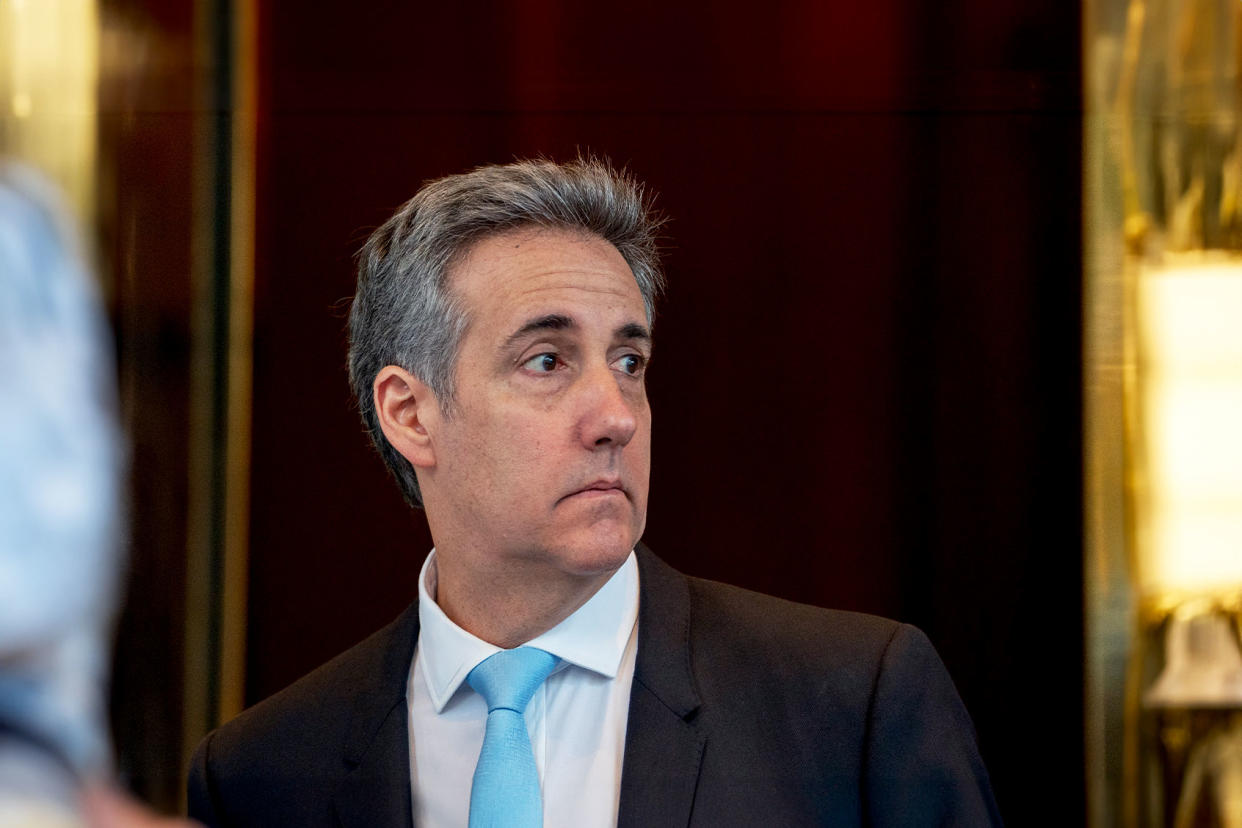"Exceeded expectations": Experts say Michael Cohen is "dismantling" Trump lawyers' defense

Michael Cohen is a liar and convicted criminal. After his testimony Monday, the consensus is that he is also a compelling witness, one able to connect the dots and explain how his lying was a requirement of the job – of working for the defendant, Donald Trump – in furtherance of the alleged conspiracy at the heart of the former president’s hush money case.
In first two weeks of the trial, the Manhattan District Attorney’s Office worked to build up Cohen’s credibility before he ever took to the stand, introducing jurors to a host of people, from former National Enquirer publisher David Pecker to a pair of Trump Organization accountants, who could bolster the prosecution’s (and Cohen’s) key claim: that the former president’s onetime fixer paid Stormy Daniels $130,000 to keep quiet ahead of the 2016 election and was reimbursed for this payment by the Republican nominee.
And when it came time for Cohen to talk, prosecutors presented records backing up what he said, from call logs to a potentially smoking-gun recording of Trump and Cohen discussing another hush payment to former Playboy model Karen McDougal.
"It all was the corroborating evidence that allowed Michael Cohen to stand on his own,” MSNBC legal analyst Katie Phang commented. “It was a free-flowing, well-paced, clean, succinct, direct examination,” she continued. “Michael Cohen was afforded the opportunity to drive the narrative forward the way that the D.A.'s office wanted him to do, and the jury was taking notes intensely. There were at least three of them that were feverishly taking notes and looking.”
While some noted that he generally avoided looking at the jurors, instead directing his responses to the prosecutor asking the questions (“It’s weird,” CNN legal affairs correspondent Paula Reid said. “It could be that he’s uncomfortable.”), the consensus appears to be that Cohen ultimately came across as restrained and professional – not like his social media persona, where he slings insults just like his former boss.
“I think he exceeded expectations in how he presented to the jury, at least so far,” Norm Eisen, an attorney who worked for Democrats on Trump’s first impeachment, wrote in a Monday evening commentary. He credited prosecutors with ably setting up Cohen for questions that had already been answered by previous witnesses, so that there would be little doubt in jurors’ minds that, for example, an August 2016 meeting in Trump Tower took place with Trump, Cohen and Pecker to discuss their “catch-and-kill” scheme for neutralizing any damaging stories about the Republican candidate
“By the time we got to October 2016,” Eisen wrote, “Cohen’s recollection of the 'Access Hollywood' tape damage control and Daniels, we had multiple layers of corroboration showing a familiar pattern: paying hush money to avoid harm to the Trump campaign.”
Cohen was also able to directly rebut the chief defense argument in the case: that even if Daniels was paid off, it had less to do with politics than it did with family, Trump chiefly concerned with how Melania would take the news. As Cohen told it, Trump could not have cared less about his wife.
"Don't worry, how long do you think I'll be on the market for? Not long,” Trump said, according to Cohen, when asked about his spouse finding out about the alleged sexual encounter with Daniels. His primary concern was not the woman he was married to, Cohen said, but the women who might view him as a sleazy predator.
"You'll recall, the defense wants to say this was about the family," MSNBC legal analyst Lisa Rubin said Monday. As the defense counsel argues, "The principal objective here – even if Donald Trump knew about it – the principal objective was not for the campaign, there was no conspiracy here to promote Donald Trump's election through unlawful means. Michael Cohen [was] sort of dismantling that.”
In that, this case, although centered on the falsification of business records to evade campaign finance laws, “really captures Donald Trump,” as conservative attorney turned Trump critic George Conway wrote Monday in The Atlantic. “[W]hat the case is really about is Trump’s modus operandi — lying,” Conway argued.
“To be sure, his other criminal cases involve lies — lies about the 2016 election, lies about the military secrets he stole. But the alleged lies in People v. Trump strike at the core of his moral putrescence — and Trump knows it,” he continued. “They are lies allegedly meant to cover up a tawdry man’s tawdry behavior. The case truly embodies Donald Trump. And for that reason, I think, it deeply disturbs him.”